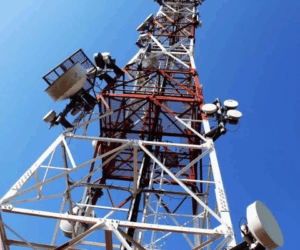Nigeria’s once-vibrant tech startup scene is witnessing a wave of shutdowns, as several high-profile, venture-backed firms close operations despite having raised millions of dollars.
The trend signals a harsh reality in Africa’s largest startup ecosystem by exposing the cracks in business models that thrived during the funding boom but can not withstand tightening capital and a harsh macroeconomic reality.
The latest fall is Lidya, a digital lending company once celebrated for providing instant credit to small and medium-sized businesses in Nigeria and Europe. The company, which raised about $8.3 million in funding, officially ceased operations in October 2025, citing severe financial distress.
In an email to customers, Lidya said it was “unable to process funds or settle claims at this time.” This followed months of customer complaints over frozen accounts and failed transactions on its loan recovery product, Lidya Collect.
Read also: Co-founder exit, tech team collapse: Inside Lidya’s final months before shutdown
The crisis deepened after co-founders Tunde Kehinde and Cristiano Machado exited the company, alongside several top executives.
The closures are exposing the reality of operating in a market with macroeconomic instability, infrastructure gaps, and mounting governance challenges, as closures exist in open banking, ed-tech, and digital lending, among others.
Earlier in February 2025, Edukoya, an edtech startup, shut down operations after struggling to gain market traction. The company had raised $3.5 million in 2021, which was Africa’s largest pre-seed round at the time, but cited fundamental adoption challenges in Nigeria’s education sector.
“We faced fundamental adoption challenges, including limited internet penetration, high device costs, and declining disposable incomes that undermined our target audience’s ability to pay for digital education services,” Edukoya said in its closure statement.
The startup returned remaining funds to investors, a rare act which highlighted a hard truth that demand for tech products does not always translate into a sustainable paying market.
At least half a dozen startups that collectively raised over $70 million have folded in less than three years, which reflects the growing challenges faced by Nigeria’s digital economy. Some high-profile names include Okra, Edukoya, Lidya, and 54gene, which collectively raised tens of millions of dollars.
These closures are proving that in the new funding climate, a massive capital raise is not a guarantee of survival.
Okra, which had raised $16.5 million, quietly shut down in May 2025. Fara Jituboh, co-founder and CEO, revealed that while the firm still had several years of financial runway, slow product adoption and delayed open banking regulations made continued operations unviable.
“This was a bold one and showed early promise, but the speed of adoption simply wasn’t fast enough. Moving forward would have meant raising more capital and extending our timeline significantly, something I didn’t feel was responsible without a stronger commercial pull,” Jituboh told Techpoint Africa at the time.
Read also: ‘Startup founders need to build value, not hype’ -Experts
Okra later refunded between $4 million and $5.5 million to investors.
Bento Africa, an HR and payroll technology company, temporarily ceased operations in early 2025 after being accused of irregularities in tax and pension remittances.
54gene, a health-tech firm that raised $45 million to revolutionise genomics research in Africa, shut down in 2023 following allegations of financial mismanagement and boardroom conflict.
Once hailed as a pioneer in African biotech, the company’s collapse marked one of the most expensive failures in the continent’s startup history.
Okadabooks, a digital publishing pioneer that championed local authorship and e-literature for a decade, also shuttered operations in 2023, citing ‘insurmountable macroeconomic challenges’ as the reason.









